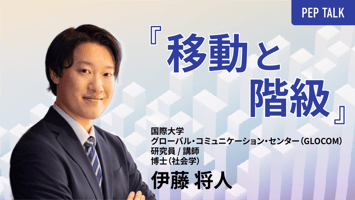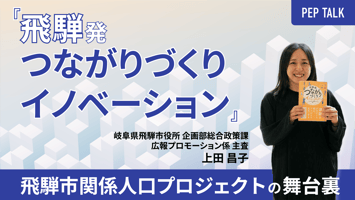PEP Talk "Mobility and Class" is now available. Discover the video below.
An interview with Mr. Masaki Takahashi, the author of "Insulation Will Save Japan", is now available.
PEP Talk "Insulation Will Save Japan" is now available.
Discover the video and the summary below.
Interview Summary
Disclaimer: This English summary of the Japanese interview transcript was generated by an AI language model, and the content of the text is not confirmed by the speaker. While efforts have been made to ensure the accuracy of the translation, please be aware that some details may be inaccurate or misinterpreted. We advise readers to refer to the original Japanese video for the most accurate and authoritative source of information. Citing this AI-generated transcript is not recommended for academic or professional purposes. This translation is provided for informational and convenience purposes only.
Podcast Overview
Takaki Umada, Director of the Policy Entrepreneur's Platform (PEP), hosted nonfiction writer Masaki Takahashi to discuss the importance of insulation. Takahashi explained how insulation contributes to Japan's health, economy, and energy conservation, providing specific examples and policy recommendations.
Introduction to Masaki Takahashi
Masaki Takahashi is a journalist who focuses on environmental energy and sustainability. He covers a wide range of topics, including international relations, nuclear weapons issues, and the Israeli–Palestinian conflict.
Importance of Insulation
Takahashi pointed out that insulation is a crucial yet overlooked aspect of Japanese architecture. Improving insulation performance directly leads to better energy efficiency, reduced health issues, and lower utility costs. He noted that Japanese homes have significantly lower insulation performance compared to international standards.
Specific Benefits of Insulation
Takahashi emphasized the benefits of insulation through his own experiences. Homes with high insulation performance remain cool in summer and warm in winter, are quieter, and have better air quality. This results in improved conditions for allergies and asthma and better sleep quality.
Misconceptions and Solutions
Common misconceptions about insulation include the belief that it makes homes hotter in summer and that high airtightness leads to stuffiness. Takahashi explained that well-insulated homes are like thermos bottles, maintaining a comfortable temperature regardless of external conditions. He also clarified that proper ventilation systems in airtight homes ensure good air quality and comfort.
Recommendations for Insulation Renovation
Takahashi recommended insulation renovations for existing homes, particularly focusing on windows, which have a significant impact. Installing indoor windows or using sealing tape can greatly improve insulation. He also suggested utilizing government subsidy programs to reduce costs.
Addressing Social Issues
Improving insulation performance can also help solve social issues such as the vacant house problem and regional revitalization. High-performance homes have higher asset value and can enhance the value of the region. Takahashi highlighted Tottori Prefecture's initiative to promote high-insulation homes as a successful example.
Future Prospects
Takahashi stated that improving insulation performance can enhance Japan's overall energy efficiency and reduce the fiscal deficit. He emphasized the need for widespread recognition of the importance of insulation and its promotion as a policy.
Conclusion
Insulation plays a vital role in Japan's health, economy, and energy conservation. Takahashi stressed the numerous benefits of improving insulation performance and urged individuals and local governments to actively engage in insulation initiatives.


